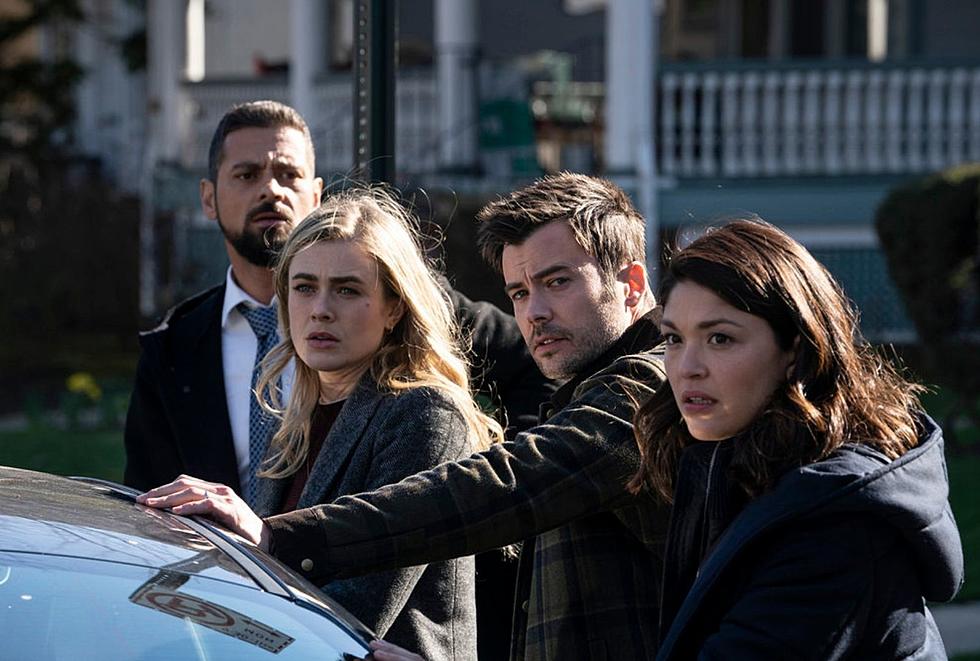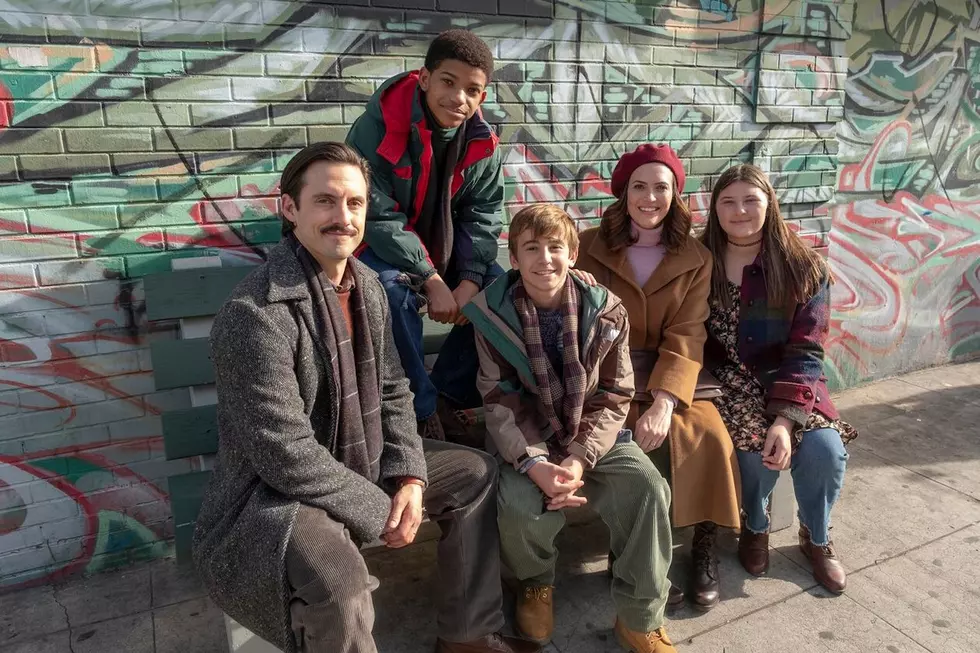
‘Hannibal’ Carved Up a Perfect Series Finale With ‘The Wrath of the Lamb,’ So Do We Really Need Another Season?
All the fuss over the last couple of months about NBC’s cancellation of Hannibal may have been distracting us from just how perfect Season 3 has been — from the European-flavored surrealist horror of the first half of the season to the slow-simmering brutality of the back half, creator Bryan Fuller has not only expertly crafted the perfect ending, but he’s also created one of the greatest love stories of contemporary television. Do we really need another season of Hannibal?
“The Wrath of the Lamb” is a fitting farewell for Hannibal, equal parts tone poem and visceral doomed romance, in which the mechanics of the plot pale in comparison to the feelings on display and those it means to elicit. Fuller has made no secret of the love shared between Hannibal and Will, however twisted and dark — that darkness does not obscure or eclipse their affection, but merely provides it with a home. “You’re playing games in the dark of the moon” Jack says to Will, later echoed by Hannibal, just as Will recites Hannibal’s own words to Francis Dolarhyde about his transformation.
Where the season previous explored blurred realities, much of Season 3 — and indeed the series, upon reflection — has focused on blurring the lines between where one person begins and the other ends, merging the boundaries of good and evil to give full dimension to the gray area that exists and encompasses all. The basic narrative of “The Wrath of the Lamb” is a complex set-up: Will Graham taking the sort of agency that up to now only Hannibal has possessed, by orchestrating Hannibal’s escape to lure Dolarhyde in. To Jack and Alana, Will presents this as an opportunity to eliminate both the Devil and the Dragon. To Bedelia, Will presents this as the well-earned delivery of a promise cloaked as a threat.
To himself, Will presents this as an opportunity to finally confront the edge of the cliff he’s been avoiding. As Hannibal explains, Will cannot go back home and expect for his life with Molly to return to normal — not after he glimpsed her fate, not when her cheated death continues to haunt him. “Extreme acts of cruelty require a high level of empathy.” There is no one more empathetic, and thus more dangerous, than Will Graham. Were he to return home, he would do so like an addict constantly fighting his dark urges, and who knows what he might do to the person he loves in an act of desperation. Were he to return home, Will Graham would do like a soldier with PTSD, an unstable and emotionally damaged man reeling from a loss he cannot define — convinced that Molly should be or is already dead, and who knows what sort of measures he may take to reconcile the reality with his perception of what should be.
And so Will Graham enlists the assistance of Dolarhyde (who now believes he has risen to a power higher than that of the Dragon that plagues him) in freeing Hannibal with the promise that the good doctor can — and must — be changed. Will visits Hannibal twice before his engineered escape: in his first visit, Will toys with Hannibal’s emotions by insisting that Hannibal only allowed himself to be captured because Will rejected him, and his current situation is a desperate attempt to remain in Will’s orbit.
Will visits again with the intention of asking for Hannibal’s help, only to realize that he actually does need him, and that Hannibal’s willful surrender wasn’t as much about manipulation as the preceding episodes would suggest — but about placing himself in a position to definitively prove his value.
Throughout the series murderers have been portrayed as twisted artists, their kills displayed as grotesque works of art reinforced by Will Graham’s empathetic investigative techniques (“this is my design”). But there is no one more artistic than Hannibal, whose piece de resistance is not a gourmet meal made of man, but Will Graham. All of the work Hannibal has done has led to this conclusion, of forcing Will to confront and embrace his true self, and by doing so he must embrace Hannibal, for Hannibal is his soulmate in so many ways.
Hannibal brings out the worst in Will and by doing so, he brings out the best of him. A good partner influences and encourages us to be the best versions of ourselves that we can be — but our true selves are hidden in our worst moments. In those traumatic, emotionally shattering times, we show the world who we truly are. So what is our “best self,” really?
Hannibal’s hideaway on the bluffs quite literally sets a stage with its slate terrace, offering little reflection in the darkness. Dolarhyde tries to kill Hannibal and a balletic fight ensues as Will and Hannibal counteract their attacker — Will slices at Francis while Hannibal clings to him like a tree-prone mammal, the two collaborating on what is to be their final work of art. Although there is a grim poetry to his death, Francis is not the canvas. Will is the canvas, and Hannibal’s work is complete.
Like a pair of star-crossed lovers, Will pulls them both over the edge into the abyss of the sea — Will cannot return to his old life as he is now and he cannot allow a man such as himself to go on living in this world. He has crossed a threshold and endured his own becoming. He has found love, however unconventional and at times grotesque, and it has changed him.
The love between Will and Hannibal is yet another subversion in a long line of subversions made by Fuller throughout the series. He has consistently swapped genders and races without making an overt declaration, shading the series with additional perspective and lending more depth to the individual experiences of each character. For two and a half seasons, we’ve watched a love story develop between Will and Hannibal, and by the second half of this season, Fuller was no longer playing coy about it. Just as Hannibal himself has become more delightfully blunt in conveying his intentions and desires, Hannibal the series has become forthright in exploring the intimacy between these two men — which exists in a beautiful gray area between platonic and romantic, a love that does not need standard definition. To define it would be to diminish its impact.
Fuller hardly needs to explore The Silence of the Lambs story and Clarice Starling, not when he’s so elegantly used Will Graham in her place. There was a nebulous and eerie sort of romance between Clarice and Hannibal in Thomas Harris’ text — essentially, Will Graham is Fuller’s grandest subversion of all.
What good could come of another season or a film? The series ends with an exquisite question mark, but it’s a rhetorical one. To have the fates of Hannibal and Will clearly defined or explained would diminish the efficacy of the final scene in “The Wrath of the Lamb,” just as attempting to define their relationship would do it a disservice. Some things are much more singular and effective when they are not defined for us in simple language. Some things defy explanation.
There is no ending more perfect than that which leaves us to our own devices — an ending that gracefully asks questions but refuses to give us answers. Instead, we are left to imagine the what ifs, to ponder where different answers may have taken us. If they lived, what then? If they died, what then? The best endings are those that leave us wanting more, but knowing we’re better off without getting it. Like Will, we learn that what we want and what we have cannot be the same.
Additional Thoughts:
- Alana gets a happy ending, in a sense, going off into the sunset with her beautiful, rich wife and their lovely child. In a world where Hannibal continues, this is not a happy ending for Alana, who will be running to protect her “borrowed” family for the rest of her life.
- We also got one final visit with Dr. Chilton, who has crisped up quite nicely.
- “Send him my regards for a speedy convalescence and tell him I do hope he is not too ugly.”
- The finale comes with a post-credits scene, in which Bedelia — out of a delusional mixture of fear and love — has amputated and cooked her own leg, waiting like a scorned lover at a dinner table set for two, coming to the heartbreaking realization that Hannibal is not showing up.
- Question: how does one cook their own leg after they amputate it? Or am I not meant to wonder?
- I’ve really loved writing about this series over the last two seasons, and I will miss it horribly — and while I do wish it could have lived one for another season or two, I do feel that Bryan Fuller gave us the best ending possible. To demand more feels selfish.
- I’ll have a separate post up shortly featuring all the best moments from the series finale, with plenty more GIFs, of course.
More From ScreenCrush









